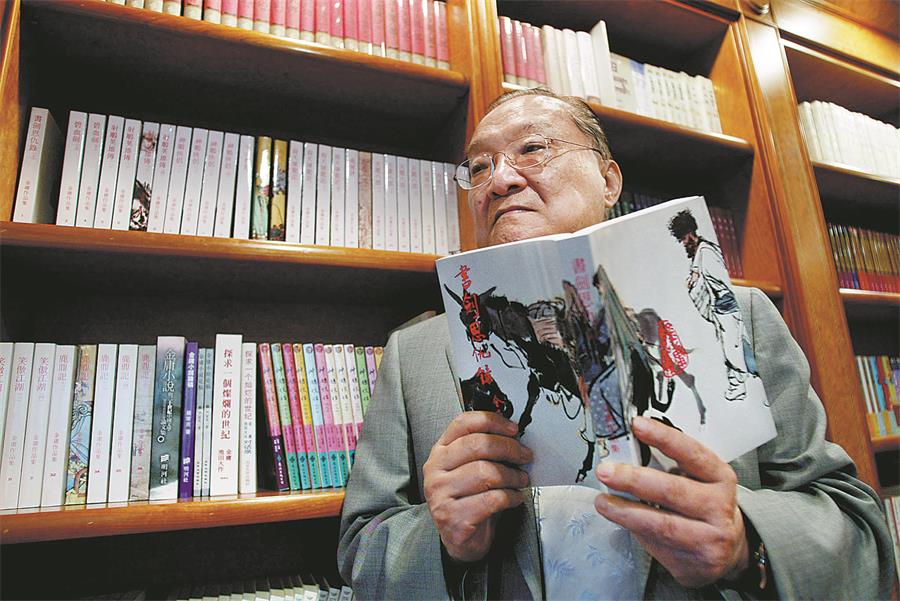Flood of warm memories prompted
By CECILY LIU,DARA WANG,YANG YANG,KONG WENZHENG | China Daily | Updated: 2018-11-01 02:57

A life in writing
Cha believed in the power of words. In his last novel, Deer and Cauldrons, he wrote a paragraph of commentary that seemed unrelated to the story's development.
It read: "He (the hero) was just a hooligan and got most of his literary education through storytelling, which was based on the historical epics written. The knowledge was enough for him to plot and change the political scene. Throughout Chinese history so many writers wrote great, thoughtful works. The power of writing is tremendous."
Cha lived from writing throughout his life. He started working for the Ta Kung Pao newspaper in Hong Kong in 1948, and began authoring kung fu series in 1955. His works won immediate acclaim.
After publishing three successful novels, he founded Ming Pao in Hong Kong in 1959. In the paper's early years, Cha wrote many of its front-page stories and editorials.
The paper flirted with bankruptcy but was kept afloat by its must-read fiction supplement, which serialized other writers' novels as well as Cha's.
A Ming Pao statement said: "Thanks for Cha's contribution during the initial stages of Ming Pao, the newspaper survived and has kept serving readers for 59 years. His passing away is definitely a great loss for Ming Pao, Hong Kong's journalism industry and the Chinese literary world."
Hong Kong Chief Executive, Carrie Lam Cheng Yuet-ngor, said on Tuesday: "Professor Cha is also highly regarded in the newspaper industry with decades of experience in it. He founded Ming Pao in his early years and also wrote editorials with constructive comments on society, earning the respect of the sector."
Lam said Cha also served in public office in Hong Kong, being a member of the Basic Law Drafting Committee before the city returned to Chinese rule in 1997.
Hui Kei, a Hong Kong columnist who worked at Ming Pao several years ago, said, "Despite relatively low salaries, Ming Pao is still a popular choice for youngsters looking for a job".
Apart from its professionalism, he said another reason is that the newspaper is willing to recruit diversified talent, including Hui himself, who had never studied journalism before.
Tam Yiu-chung, a Hong Kong deputy to the Standing Committee of the National People's Congress, the country's top legislature, worked with Cha on the Basic Law Drafting Committee in the 1980s.
Tam said the proposal Cha put forward back then with fellow committee member, Hong Kong industrialist Cha Chi-ming, on electoral arrangements for the city's chief executive and legislators had contributed to the stable development of the Hong Kong Special Administrative Region's political system.
Tam said Cha was familiar with the political affairs of the day, was quick-minded and put forward many suggestions to the committee.
























